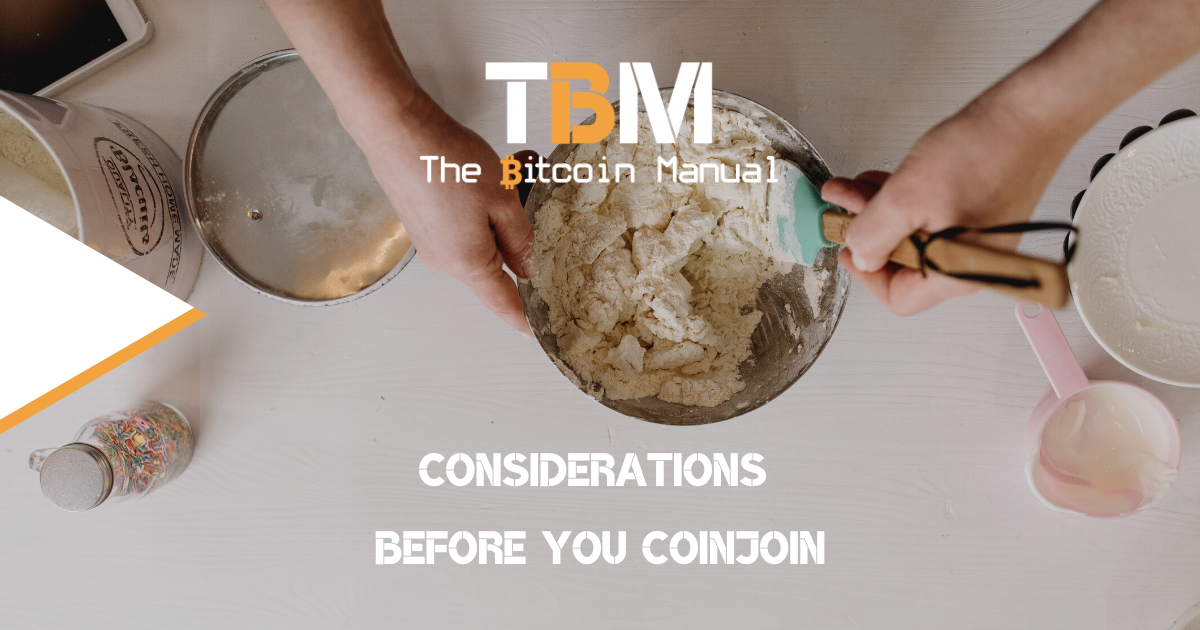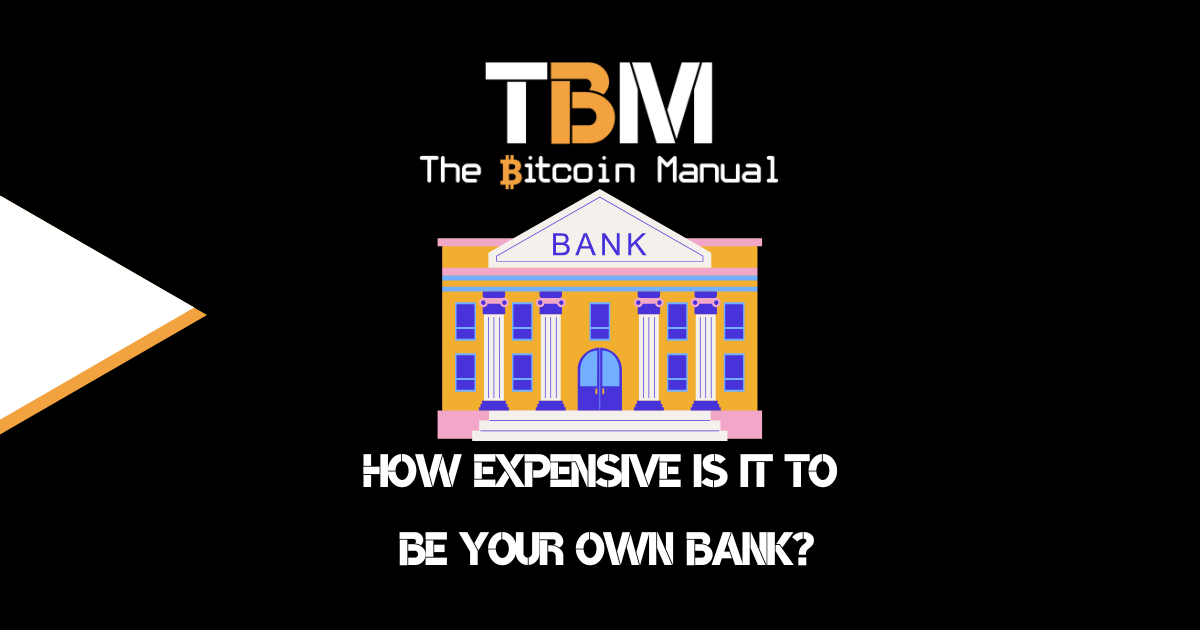In the ever-evolving world of Bitcoin, privacy remains a top concern for many users. The fact that your wealth is open for all to see is a real concern for many who choose to save in Bitcoin. None of us want the entire world to know what amount of wealth we own, nor where we are moving it to, or how we spend it.
This is not only a privacy risk but a massive security risk, which is why Bitcoin doesn’t store personally identifiable information. Bitcoin only stores its transaction data on the ledger; who uses it and how much of it an individual owns is only that person’s business. All of us can see where funds are and where they are moving to, but as an outsider, you don’t know if this is one person, many, an institution or a company moving those funds.
Bitcoin provides a degree of pseudonymity, its public ledger allows transactions to be traced back to their origin, and if that origin has personally identifiable information, your funds can be traced back to you. This is where chain analysis firms come into play; these firms spend all their time watching the chain and trying to add additional metadata to transactions, like users’ identities and much more.
While chain analysis firms hold a wealth of data and can provide enrichment on that data via third-party data streams, there is a chink in the way these firms assume ownership of Bitcoin.
CoinJoins offer a solution to this privacy issue, enabling users to mix their transactions to enhance anonymity. It does so by breaking the heuristics used to assume the ownership of a UTXO, making it harder for chain analysis firms to assume a certain Bitcoin transaction belongs to you.
What is CoinJoins?
CoinJoins are a type of Bitcoin transaction that combines multiple users’ inputs and outputs into a single transaction, effectively obfuscating the link between the sender and receiver. The idea was first proposed by Gregory Maxwell in 2013 and has since been implemented in various privacy-focused Bitcoin wallets and services.
In a CoinJoin transaction, multiple participants provide their inputs (UTXOs) and desired outputs (recipient addresses) to a coordinating entity, which creates a single transaction containing all the inputs and outputs.
The transaction is constructed in such a way that the amounts sent and received remain unchanged, but the link between the inputs and their corresponding outputs is obscured. The result is increased privacy for all participants, as it becomes more challenging for an outside observer to trace the flow of funds between the addresses involved.
Why Bitcoiners wish to CoinJoin?
There are several reasons why Bitcoin users may choose to participate in a CoinJoin:
Privacy
The primary motivation for using CoinJoins is to enhance transaction privacy. By mixing multiple transactions, users can effectively “break the chain” of traceability, making it difficult for third parties to determine the sender and recipient of a particular transaction.
Fungibility
In an ideal monetary system, every unit of currency should be interchangeable with any other unit. CoinJoins help maintain Bitcoin’s fungibility by ensuring that coins cannot be easily linked to their transaction history, reducing the risk of coins being labelled as tainted and then treated differently based on their past usage.
Regulatory concerns
Some users may choose to use CoinJoins to avoid potential regulatory scrutiny as governments and regulatory agencies increasingly seek to monitor and control the flow of Bitcoin.
Personal security
CoinJoins can help protect users from targeted attacks by criminals seeking to identify and exploit wealthy individuals. By obscuring the transaction trail, users can keep their financial activities private and reduce the risk of being targeted.
Why exchanges and centralised entities avoid mixed coins
Despite the privacy benefits of CoinJoins, some centralised entities, such as cryptocurrency exchanges and financial institutions, may be hesitant to accept mixed coins for several reasons:
Regulatory compliance
Many exchanges and financial institutions are subject to strict anti-money laundering (AML) and know-your-customer (KYC) regulations. Accepting mixed coins could expose these entities to regulatory scrutiny or penalties if they cannot trace the source of the funds.
Reputation risk
In some cases, mixed coins may be associated with illicit activities, such as money laundering or financing of terrorism. Centralised entities may avoid accepting mixed coins to protect their reputation and avoid potential legal consequences.
Operational complexity
Handling mixed coins can introduce additional complexities for exchanges and other centralised entities, such as increased transaction monitoring and risk assessment efforts, which may not be worth the potential benefits.
How to manage your mixed coins
CoinJoins cannot erase the past history you’ve created for yourself; if you’ve made purchases on a KYC exchange, that data will always be there; the service provider will document your purchase history. Governments and other financial institutions interested in your transactions can always request that history.
CoinJoins only offer you forward privacy so that no one can see the final destination of those coins and, therefore, wouldn’t know if you’ve spent those coins in the future.
If you choose to use CoinJoins to enhance your transaction privacy, it’s essential to manage your mixed coins responsibly and know what you’re getting into when mixing your coins.
Segregate mixed and unmixed coins.
If you’re going to spend the additional satoshis paying a mixing coordinator and miners, you best make good use of the fees you pay and not re-dox your coins.
When you CoinJoin, keep your mixed coins separate from your unmixed coins to avoid accidentally linking your transactions. Use separate wallets or wallet accounts, and never reuse addresses to store and manage your mixed and unmixed coins. This practice ensures that you maintain the privacy benefits gained from using CoinJoins.
If you do end up doxing yourself, you’ll have to remix your coins again, which can become costly.
Choose privacy-focused wallets and services and your own node.
When managing mixed coins, opt for wallets and services that prioritise privacy and support CoinJoin transactions. These wallets and services typically have built-in features to handle mixed coins and maintain their privacy.
Additionally, you want to be using your own node. If you’re CoinJoining, but you’re broadcasting via a third-party node, that data can be used to link your transactions. Instead, you want to broadcast directly to the chain when performing CoinJoins, which can only be done using your own node.
Monitor privacy levels.
Regularly check your mixed coins’ privacy levels to ensure they remain untraceable. Tools like self-hosted blockchain explorers can help you analyse your CoinJoin transactions and determine their effectiveness in preserving your privacy.
Additionally, you can set up receive addresses using an X-Pub or a PayNym to help ensure you don’t reuse addresses and maintain your privacy.
Practice good OpSec (Operational Security)
To maintain your privacy, avoid publicly disclosing any information about your cryptocurrency holdings or transactions. Be cautious about sharing information on social media, forums, or other public platforms that could be used to trace your transactions or link them to your identity.
Be mindful of centralised exchanges.
As mentioned earlier, some centralised exchanges may avoid accepting mixed coins due to regulatory and reputation concerns. When mixing your coins, you will have to accept that you may not be able to use a CEX or CEFI service in the future; if you’re okay with that trade-off, then this should be a non-issue for you.
If you do plan to return to a regulated entity to sell your coins in the future, you might want to keep a CoinJoin as long-term storage. While your non-mixed coins are the ones, you keep with the intention to liquidate in the near future.
You could try using a regulatory complaint CoinJoin coordinator like Wasabi Wallet but remember; these rules are all subject to change. Today’s permissible mixed coins can easily become tomorrow’s tainted coins.
Leveraging the Lightning Network
If you have CoinJoined your funds, but you need to access the capital and think that a regulated entity could flag it, your next option would be open a Lightning Channel or Submarine swap your on-chain funds for a Lightning balance.
Now you can safely go ahead and spend those funds without it being attributed to the on-chain UTXO. Once you’ve conducted your Lightning transactions and closed your channel, you’ll have a brand new UTXO with a different balance.
Leveraging the Liquid Network
Another option for those looking to access certain entities that might not be keen on accepting coins with a chequered past is to use a side-chain like the Liquid Network. You can run the Liquid Elements node software on your preferred node setup, peg in a Bitcoin UTXO onto the Liquid Network, and receive L-BTC instead.
Once you have your L-BTC, you can perform one of the following:
- Purchase directly with L-BTC if the entity supports it.
- Swap your L-BTC for BTC with a swapping service, then pay with that new UTXO.
- Atomic swap L-BTC or L-USDT to make the intended purchase.
Privacy is worth protecting.
CoinJoins offer a valuable solution for enhancing privacy in Bitcoin transactions. While centralised entities may have concerns about accepting mixed coins, responsible management of your mixed coins can help you maintain your privacy while still participating in the broader Bitcoin ecosystem.
You should not be limited in how you spend, save or obscure the ownership of your funds. While governments and regulatory bodies might frown upon privacy best practices, they will not be the ones to help you should your data get leaked and you end up becoming a target for criminals.
Are you a Bitcoin and privacy fan?
Have you been using Bitcoin privately to mask your on-chain footprint? What is your preferred method of masking your transactions? Which app is your favourite? Have you tried all the forms of privacy payments? Which one do you prefer? Do you have any tips for keeping chain analysis in the dark?
Let us know in the comments down below.




